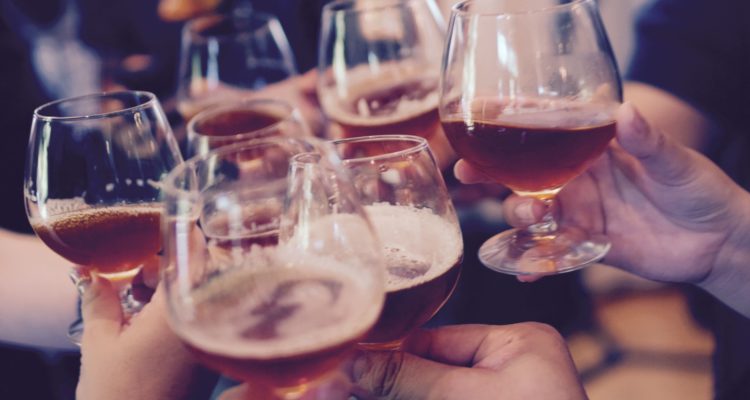Are You Being Controlled By An Addiction?
Addictive behaviour generally involves activities that provide an escape from worries or pain, such as drinking, drugs, gambling, sex or shopping. It is through this perceived ‘escape’ that a person may develop long-lasting habits that, in some cases, impede on their everyday lives and overall health.
Although everybody has habit-forming tendencies to a certain extent, some people are more susceptible due to genetic factors. And while a small amount of addicts are capable of breaking their habits, most need some form of treatment to help them effectively break their addictive behaviour.
As daunting as it may seem, getting those dangerous habits under control can be achieved through professional addiction counselling Brisbane sessions with our qualified and experienced psychologists.
We are dedicated to helping you achieve that.
Signs and Symptoms of Addiction
Many addicts don’t realise they have a problem, and it may take a drastic event or the concern of a family member or loved one to bring it to your attention.
If you can relate to any of the following signs of addictive behaviour, you should consider reaching out for help.
- You regularly or continually use substances or activities to cope emotionally, physically or socially.
- You aren’t able to function well without using substances or activities.
- You feel like you should cut down on your substance use or behaviour.
- You neglect your responsibilities or stop participating in activities that you used to enjoy, such as work, study, hobbies, family, sports or social commitments.
- Your career and finances are suffering.
- You feel guilty about your substance use or behaviour.
- You are becoming defensive and lying about how much you use or how often you take part in the activity.
- You feel annoyed about people telling you or complaining about your substance use or behaviour.
- You take part in risky or dangerous behaviour as a result of using substances, such as drunk driving or sharing needles.
- Your relationships with your family, friends and loved ones are breaking down.
- Your appetite and eating habits are changing dramatically.
- You lack concentration, memory and energy.
- Your physical tolerance for a substance is very high, resulting in the need for more of the substance to experience the same effects.
- You experience physical and mental withdrawal symptoms when not using the substance or doing the activity.
- You are losing control of your substance use or behaviour, and feel like you wouldn’t be able to stop even if you tried.
- Your daily life is driven by your substance use or behaviour, and you spend a lot of time using, finding, getting or recovering from it.
The Impacts of Addiction
Any type of addiction will have short and long-term effects on your health, relationships and finances, and these can become more and more damaging the longer the addiction goes on.
These effects include:
- Your physical health: Particularly with substances like drugs and alcohol, the impacts on your physical health can include aches and pains, nausea, infections, weight gain/loss, sleep problems and chronic disease.
- Your mental health: Addictive behaviour is a drain on your mental and emotional health, often resulting in depression, anxiety, paranoia or even psychosis.
- Your relationships: Personal relationships will suffer during an addiction, and you may experience family problems, relationship breakdowns, frequent arguments and the loss of friends.
- Your work and finances: Catering to an addiction often surpasses other important responsibilities and commitments, which can result in struggling with work or studies, losing your job or going into debt.
- Your social life: An addiction is also likely to impact you socially, as you lose interest in things you once liked, stop participating in social outings and activities, and become anti-social and isolated.
The impacts on your physical and mental health, social life and personal relationships can be far-reaching, and it’s vital to identify and kerb the addiction before it leaves a permanent scar on your life.
The most effective way of changing your behaviour is with professional alcohol and drug counselling Brisbane wide through CFHP, with qualified psychologists dedicated to helping you take back control of your life.
How Drug and Alcohol Counselling Can Help
Addiction counselling at Brisbane’s CFHP can help give you the support to change your behaviour. Overcoming addictive behaviour is very difficult but you don’t have to do it alone – our experienced psychologists will help you move forward with your life.
We can work with all types of addiction, and have particular experience in drug and alcohol treatment. By focusing on key issues that will help you take back control, our addiction, alcohol and drug counselling will identify the underlying issues behind your addiction and give you the tools you need to break the habit and move positively towards recovery.
Treatment and counselling for addiction involves:
- Confronting and accepting the problem
- Discovering the underlying causes and triggers
- Breaking your addictive habits and patterns
- Developing strategies to cope with trigger situations
- Devising tailored methods of handling withdrawal symptoms
By building a trusting and honest relationship with your psychologist, you can work together to gain confidence and break the damaging cycle of addiction. With the right help, it’s possible to move past addictive behaviour and begin building a healthy, fulfilling life.
The Road to Recovery
Recovering from addiction is a long process, but can be achieved with proper treatment, management and support. Being honest with yourself and your loved ones is the first step to getting the help you need, and together with the right treatment, there are a number of things you can do to assist your recovery.
- Ask for help when you need it. You can’t overcome addiction on your own. If you feel like you might relapse, or just need someone to talk to, don’t hesitate to reach out to people you trust.
- Get support from a variety of people. There are plenty of support networks you can reach out to, from your friends and family to your psychologist, doctor and other health professionals, to telephone helplines, rehabilitation centres and support groups.
- Find coping strategies that work for you. Learning how to recognise your triggers and deal with them effectively is a key part of your recovery journey. Look for healthy ways to cope with problems, stress and pressure to avoid falling back into addiction, such as doing things you enjoy, surrounding yourself with positive people, and making time to relax and meditate.
- Don’t let setbacks stop you. Recovery is a long and often difficult process, and stumbles and roadblocks are inevitable. It’s important to be realistic and expect setbacks, but don’t let the failures hold you back. Instead, focus on your plan for each day, rely on your support network and don’t give up – it will get easier.
At CFHP, we have psychologists based in Brisbane that specialise in addiction counselling so that you can get your life back on track and break the addiction. Call us on (07) 3211 1117 or contact us for in person or online therapy appointments today!


